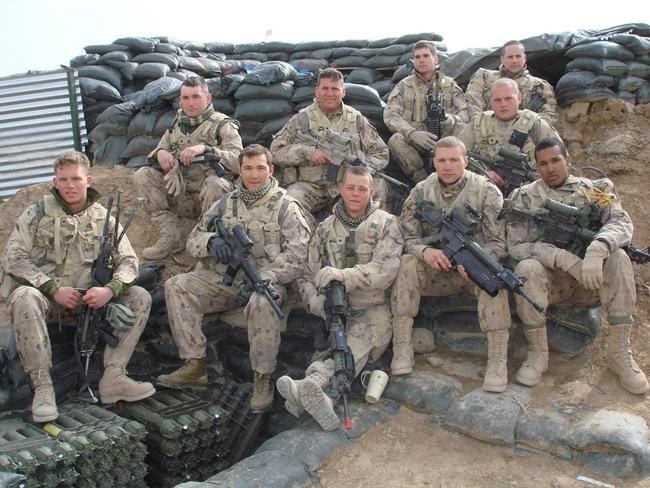PORT HAWKESBURY, N.S. — In all, Lionel Desmond spent five years seeking treatment for debilitating mental disorders that emerged after he served as an infantryman during a violent tour of duty in Afghanistan in 2007.
In 2011, he was diagnosed with severe post-traumatic stress disorder and major depression while still serving in the military. But it wasn't until 2016 — almost a year after he was discharged from the military — that he was also diagnosed with "mixed personality traits," an inquiry in Nova Scotia learned Tuesday.
The provincial fatality inquiry is investigating why the former corporal bought a rifle on Jan. 3, 2017 and fatally shot his 31-year-old wife, Shanna, their 10-year-old daughter, Aaliyah, and his 52-year-old mother, Brenda, before killing himself in their rural Nova Scotia home.
The inquiry has heard much evidence about Desmond's PTSD and depression, mental disorders that combined to cause poor sleep, vivid nightmares, anti-social behaviour, hyper-vigilance and flashbacks that forced him to relive gruesome firefights.
But something new was introduced Tuesday by Dr. Robert Ouellette, a psychiatrist at Ste. Anne's Hospital in Montreal, where Desmond was assessed and received in-patient treatment between May 30 and Aug. 15, 2016.
Ouellette said Desmond also suffered from so-called mixed personality traits, which mainly involved obsessive compulsive and paranoid behaviour.
The psychiatrist said these traits, which were not full-blown disorders, complicated Desmond's treatment because they made him suspicious of other people's motives and unwilling to trust others.
"He was not sure if we were working with him or against him," Ouellette testified.
As well, Ouellette said these traits seemed to feed Desmond's mistrust and jealousy towards his wife.
"They doubt everybody," he said, referring to Desmond's condition. "They will not confide in others because they feel they will turn against them."
Ouellette said Desmond's anger and jealousy toward his wife wasn't caused by his PTSD, but the psychiatrist said the condition "might have exacerbated these traits of his personality."
Ouellette stressed that the former corporal would have benefited from taking additional medications, something he agreed to do before he arrived at the hospital. But by June 16, 2016, Desmond told Ouellette he would not be taking more drugs.
At one point, Desmond told the psychiatrist: "You're not going to take the demon out of me."
Still, Ouellette said his patient had made progress in the initial stabilization program, when he reported better sleep patterns, more energy, increased socialization and virtually no depression.
That's why Ouellette recommended Desmond for the residential phase of the treatment program, even though he felt his chances for success were only "50/50." In the end, Desmond refused to take new medications, and he left the treatment program before it was finished in August 2016, the inquiry has heard.
"If he would have taken the right medications, he would have shown more progress in the residential program and later at home," Ouellette said.
The prescribed medications and therapy at the hospital would have also helped Desmond control his outbursts, he said. "Anger was a major problem for him," he said.
When asked if Desmond should have been able to access firearms, Ouellette said that would have been a bad idea, mainly because of his anger management challenges.
Despite Desmond's lack of co-operation when it came to medications, Ouellette reported that his patient was highly motivated to attend the residential program because he was desperate to become a better father and husband.
"There were a lot of problems with his wife," Ouellette said. "He made that the purpose of being with us .... He was always talking more about his marital life than his PTSD symptoms."
Ouellette said Desmond's wife told hospital staff that her husband had never been physically violent toward her and their daughter, and she said she was not afraid of him. The psychiatrist said Shanna and Aaliyah Desmond had visited him in Montreal for four days, and there was every indication it was a successful encounter.
Desmond left the hospital in August 2016. The inquiry has heard that Desmond received no therapeutic treatment for the next four months, even though Veterans Affairs Canada was in the process of getting him the help he needed.
This report by The Canadian Press was first published March 2, 2021.
— By Michael MacDonald in Halifax
The Canadian Press



